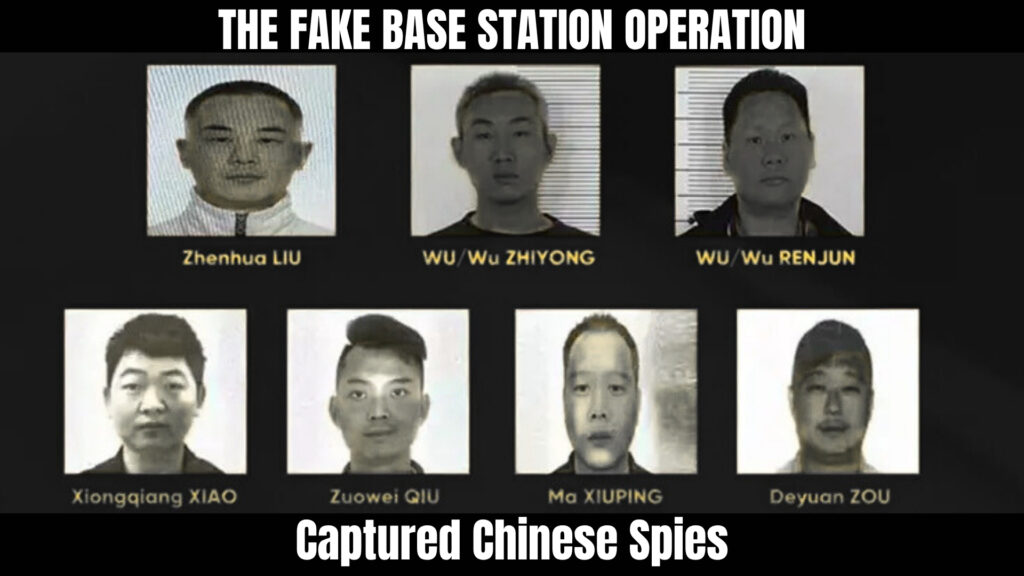The National Intelligence Organization (Milli İstihbarat Teşkilatı, MİT), one of the most deeply rooted security institutions in the history of the Republic of Turkey, does not carry the “Milli” (National) designation merely as a formal marker of affiliation but as a raison d’être and a strategic orientation. This designation transcends the traditional reflexes developed to counter threats to the state’s survival, emerging today as an expression of sovereignty redefined within the uncertainties of the digital age. The recently uncovered fake base station operation is not only a technical intelligence triumph but also a profound maneuver that elevates Turkey’s concept of “national security” to a new dimension.
One of the fundamental reasons for a state’s existence is its capacity to protect its citizens’ communications, privacy, and the integrity of their information. In an era where this capacity is tested against digital threats, intelligence has evolved from merely the art of accessing covert information to the ability to transform data security into a strategic shield. In the face of sophisticated, externally orchestrated, and organized next-generation espionage activities, MİT’s emergence as a proactive, structure-dismantling, and deterrence-building actor demonstrates that the “national” character is being dynamically redefined.
While intelligence wars during the Cold War were primarily waged between ideological blocs, today’s battles center on information, identity, location, and data. For a state like Turkey, situated at the geopolitical crossroads of Eurasia, the Middle East, and the Turkic world, national intelligence must inevitably extend beyond border security to encompass digital sovereignty, cyber defense, and the protection of kin communities abroad.
MİT’s recent operation not only dismantled a China-linked espionage network but also showcased Turkey’s strategic acumen in safeguarding not only its own citizens but also its kin beyond its borders. This underscores that the “national” designation is not merely a reflection of origin but also of purpose—not just an inward-looking loyalty but a strategic responsibility projected outward.
CASE STUDY: THE FAKE BASE STATION OPERATION

The fake base station operation, conducted across Istanbul, İzmir, Bursa, Manisa, and Balıkesir and brought to public attention, stands as a pivotal moment that highlights the National Intelligence Organization’s strategic depth and capacity in the realm of cybersecurity. At first glance, these activities appeared to be a classic fraud scheme, but a closer examination revealed the traces of a highly systematic, organized, and targeted foreign espionage structure. Through MİT’s technical surveillance, signal analysis, and intelligence assessment capabilities, this network was swiftly exposed, neutralizing a covert espionage operation conducted in the invisible layers of the digital world, yet in full view of the public.
Fake base stations are sophisticated systems that mimic GSM signals to redirect mobile devices to their own networks instead of legitimate base stations, thereby gaining access to device identities, locations, SMS, and call data. The devices used in this operation, which were of Chinese origin, necessitate analyzing the incident not only from a cybersecurity perspective but also within a geopolitical framework. It was determined that the systems operated by suspects, predominantly Chinese nationals residing in Turkey, were transmitting data to specific IP addresses in China. This clearly indicates that the operation was not merely a series of individual fraud attempts but part of a multilayered intelligence activity.
Even more striking is the fact that the collected data did not target random citizens but was specifically aimed at individuals belonging to certain ethnic, political, and administrative groups. The information gathered focused on Turkey’s Uyghur Turkish community, certain civil society organizations, and public officials. This suggests that the operation is part of China’s global surveillance strategy targeting the Uyghur diaspora. The execution of such an activity on Turkish soil, targeting a community with which Turkey shares deep cultural, historical, and humanitarian ties, represents a significant challenge not only in terms of intelligence but also on diplomatic and moral grounds.
Through this operation, MİT not only dismantled an espionage network but also unequivocally demonstrated its commitment to protecting Turkey’s territorial integrity as well as its digital sovereignty. This success illustrates Turkey’s ability to counter asymmetrical threats in international relations, not with outdated methods but with cutting-edge technological tools and multidimensional analysis. In this sense, the operation is a success story that redefines not only national security but also the concept of “national responsibility.”
WHY IS THE “NATIONAL” IDENTITY CRITICAL?

Defining a state’s security apparatus with the term “national” is not merely a matter of institutional identity; it is a reflection of that state’s understanding of sovereignty, its security philosophy, and its historical consciousness. The “national” designation in MİT’s name carries more significance today than ever before. In an era where the concept of security extends beyond physical borders to digital realms, identity-based existence, and cultural continuity, “national intelligence” has come to signify a structure that safeguards not only the state but also the nation’s memory, will, and privacy.
The fake base station operation serves as a striking example in this context. Beyond its technical dimensions, the operation’s significance lies in this: the Republic of Turkey has identified, neutralized, and publicly exposed a foreign intelligence structure infiltrating the communication networks of its citizens, kin communities, and strategic institutions. This is not merely a defensive action but a delineation of the boundaries of sovereignty. In this context, the term “national” becomes the flag planted on the invisible borders of the cyber world.
Today, intelligence has transcended the traditional notion of “information gathering” and has evolved into the function of constructing a strategic security architecture. Building this architecture with indigenous and national elements—free from external dependencies, powered by local algorithms, hardware, and analytical systems—is not merely a technological preference but a strategic imperative. The nationalization of intelligence ensures control over data, and control, in turn, fosters independence in decision-making processes.
Moreover, “national” intelligence is not only an inward-looking security reflex but also an outward-projected message of deterrence. The dismantling of a China-linked espionage network on Turkish soil is not just a domestic operation; it is a diplomatic declaration that Turkey’s red lines extend to the digital realm, affirming that its borders are not only geographical but also virtual. In this regard, MİT’s success exemplifies the redefinition of national security in alignment with both the spirit of the era and the values of the nation.
Another critical aspect is Turkey’s approach to such threats, which transcends traditional security reflexes and aligns with its historical and cultural codes, supported by high technology. This stance involves not only neutralizing threats but also interpreting them and developing strategies for the future. Thus, MİT’s successes today are not merely operational but also intellectual, cultural, and strategic in their holistic nature.
TURKEY’S INTELLIGENCE VISION

The operational successes of the National Intelligence Organization in recent years have surpassed the scope of a mere defense mechanism, demonstrating that Turkey’s intelligence vision has evolved into a proactive, technology-centric, and globally competitive framework. The fake base station operation is a contemporary manifestation of this transformation. Detecting and neutralizing such high-tech threats is only possible with a broad strategic vision and robust institutional capacity. Consequently, MİT’s current stance reveals that it performs not only as an intelligence agency but also as a strategic governance entity.
At the heart of this new vision lies not just “information” but “interpreted information.” Modern threats manifest in complex, dispersed, and covert forms. While traditional intelligence approaches struggle to define these new threat types, MİT’s data-driven analytical expertise, artificial intelligence-supported tracking systems, and advanced signals intelligence (SIGINT) capabilities set it apart. Through these, Turkey is becoming an actor that anticipates threats at national, regional, and global levels, identifies behavioral patterns, and, when necessary, establishes deterrence.
Another dimension of the operation is institutional foresight. Today, MİT is not merely making decisions based on available data but is also predicting potential risk areas, simulating developments, and analyzing political, economic, and social dimensions in tandem. In this sense, the organization has evolved from being solely an “intelligence agency” into a “strategy production center.” The ability to read the intent behind cyber threats, as seen in the fake base station case, and to recognize intelligence as a tool of foreign policy rather than just a security issue, is a product of this vision.
Turkey’s progress in this field is also the result of a paradigm shift. For years, Turkey was a target of major powers’ intelligence activities, but it is now transitioning into a position where it shapes, balances, and, when necessary, directs the game. MİT’s development of a unique model among global intelligence actors—neither fully resembling the centralized organizations of the West nor the disciplined, closed structures of the East—is another indicator of this indigenous and national intelligence model.
MİT’s increasing capacity in this direction is part of Turkey’s claim and capability to reshape its security architecture for the 21st century. Viewed in this light, the operation is not just a success but a paradigm shift, not merely a tactical move but a sign of strategic transformation.
HISTORICAL RESPONSIBILITY

Another striking aspect of MİT’s recent operation is its direct engagement with Turkey’s ethnic and moral responsibilities through the targeted communities. The fact that the data collected via fake base stations was aimed not only at Turkish citizens but also at Uyghur Turks living in Turkey, their community leaders, and individuals active in academic and civil structures reveals a dimension that transcends the operation’s technical aspects, carrying profound historical and ethical implications.
The Uyghur Turks are not merely an ethnic group; they hold a unique place in the cultural memory, historical roots, and shared sense of destiny of the Turkish nation. Facing systematic surveillance and assimilation policies by the Chinese government, this community has long been the subject of a human tragedy largely ignored by the global community. For Turkey, however, the issue is not just a matter of human rights violations but an expression of a historical and conscientious call.
MİT’s resolve in this operation reflects not only Turkey’s commitment to its digital sovereignty but also its determination to protect the dignity and privacy of its kin residing within its borders. Here, the concept of “national” intelligence takes on a perspective that transcends nation-state boundaries, rooted in historical responsibilities, and evolves into a security paradigm at the intersection of state rationality and national conscience.
The relationship between the Uyghur Turks and Turkey is not merely one of political refuge but of cultural belonging, historical loyalty, and mutual trust. The targeting of this bond by China-linked espionage activities represents a strategic intervention aimed at undermining this trust. MÍT’s response demonstrates that Turkey possesses a state will that refuses to leave its citizens or its extended community vulnerable to threats.
While maintaining diplomatic relations with a major power like China, Turkey simultaneously demonstrates a clear and resolute stance against its covert activities. This is a rare example of preserving an ethical compass within the realm of realpolitic.







